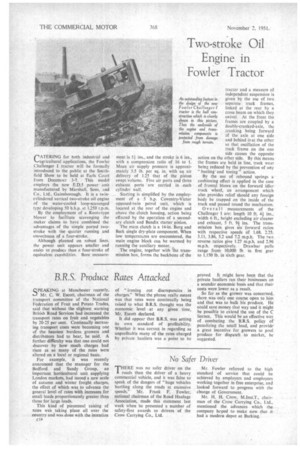B.R.S. Produce Rates Attacked
Page 54

If you've noticed an error in this article please click here to report it so we can fix it.
QPEAKING at Manchester recently, L) Mr. C. W. Escott, chairman of the transport committee of the National Federation of Fruit and Potato Trades, said that without the slightest warning British Road Services had increased the transport rates on fruit and vegetables by 20-25 per cent. Continually increasing transport costs were becoming one of the heaviest burdens growers and distributors had to bear, he said. A further difficulty was that one could not discover by how much charges had risen as so many of the rates were altered on a local or regional basis.
For example, it was recently announced that the manager for the Bedford and Sandy Group, an important horticultural unit supplying London markets, had issued a new scale of autumn and winter freight charges. the effect of which was to advance the general level of rates with increases for small loads proportionately greater than those for large loads.
This kind of piecemeal raising of rates was taking place all over the country and was done with the intention c 16
of "ironing out discrepancies in charges." What the phrase really meant was that rates were continually being raised to what B.R.S. thought was the economic level at any given time, Mr. Escott declared.
It did appear that B.R.S. was setting its own standard of profitability. Whether it was correct in regarding as unprofitable many of the rates charged by private hauliers was a point to be proved. It might have been that the private hauliers ran their businesses on a sounder economic basis and that their costs were lower as a result.
So far as the grower was concerned, there was only one course open to him and that was to bulk his produce. He could save money that way and it might be possible to extend the use of the C licence. This would he an effective way of combating the B.R.S. policy of penalizing the small load, and provide a great incentive for growers to pool produce for dispatch to market, he suggested.




























































































